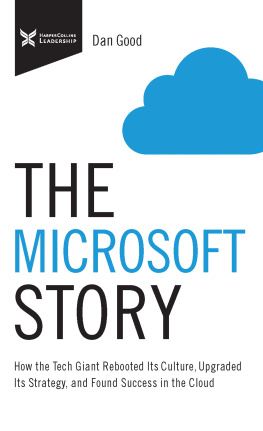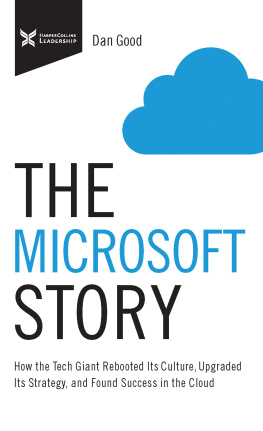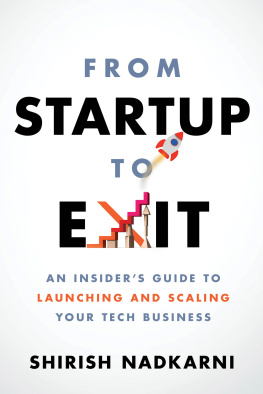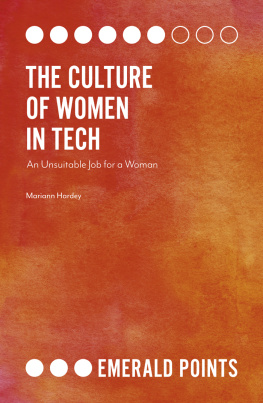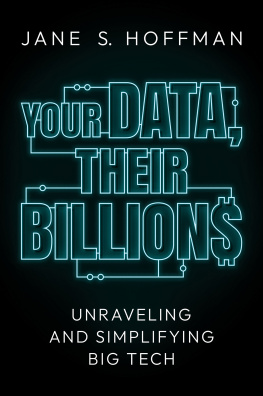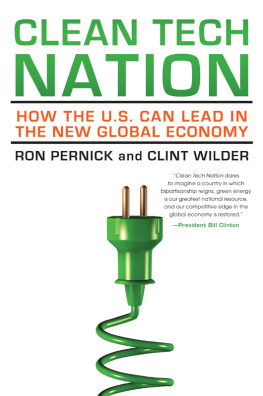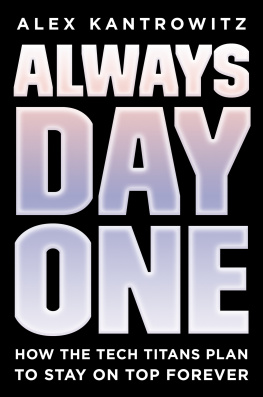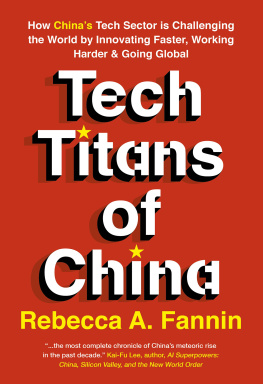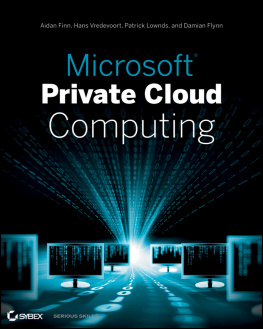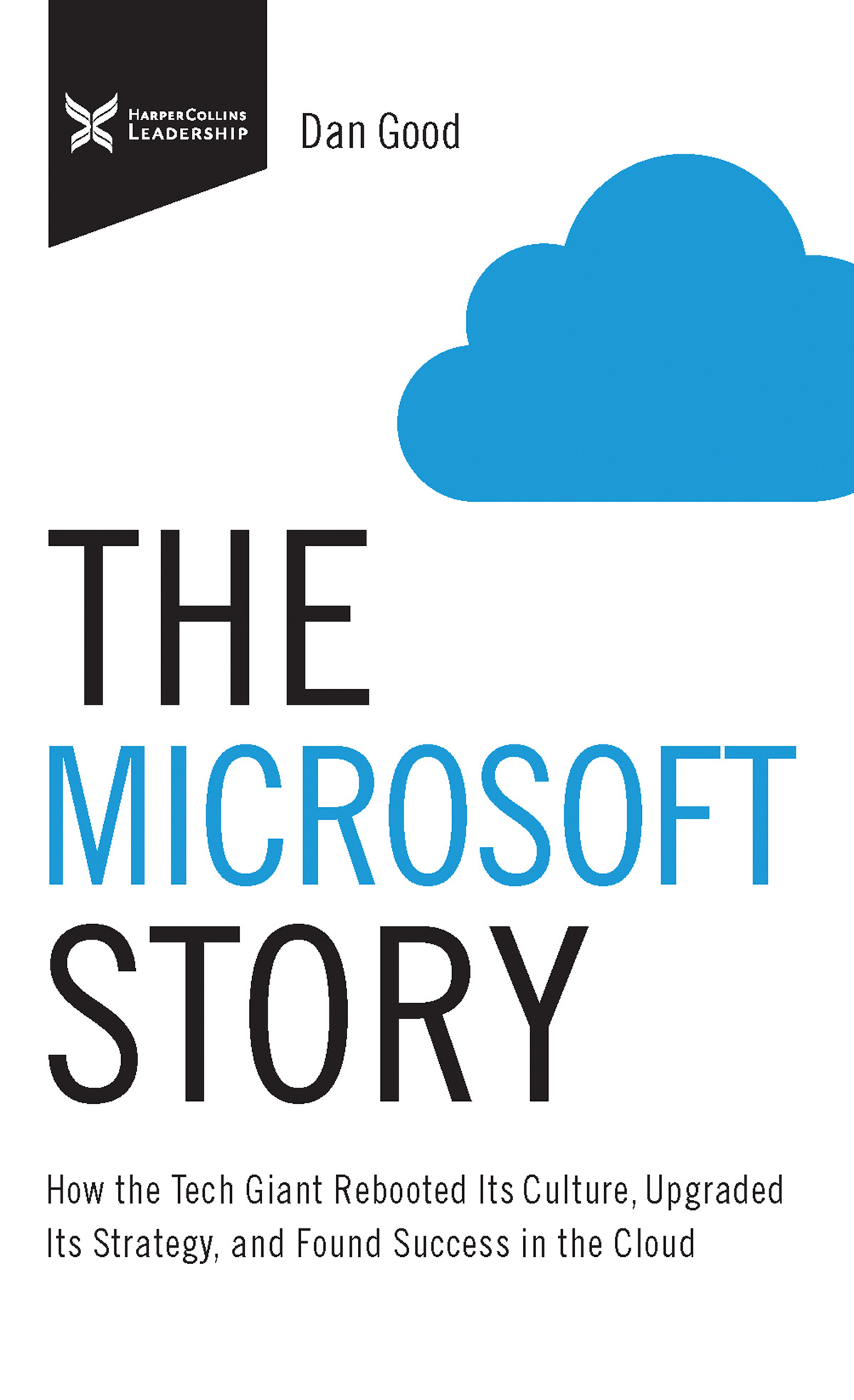2020 HarperCollins Leadership
All rights reserved. No portion of this book may be reproduced, stored in a retrieval system, or transmitted in any form or by any meanselectronic, mechanical, photocopy, recording, scanning, or otherexcept for brief quotations in critical reviews or articles, without the prior written permission of the publisher.
Published by HarperCollins Leadership, an imprint of HarperCollins Focus LLC.
Published in association with Kevin Anderson & Associates: https://www.ka-writing.com/.
Book design by Aubrey Khan, Neuwirth & Associates.
ISBN 978-1-4002-2391-6 (eBook)
ISBN 978-1-4002-2390-9 (HC)
Epub Edition August 2020 9781400223916
Library of Congress Control Number: 2020941845
Printed in the United States of America
20 21 22 23 LSC 10 9 8 7 6 5 4 3 2 1
Information about External Hyperlinks in this ebook
Please note that the endnotes in this ebook may contain hyperlinks to external websites as part of bibliographic citations. These hyperlinks have not been activated by the publisher, who cannot verify the accuracy of these links beyond the date of publication
CONTENTS
Guide
Writing a book is a solitary and collaborative process, all at the same time. Im grateful for the chance to speak with Mario Juarez, who spent decades as a communications leader at Microsoft; Nathan Myhrvold, formerly Microsofts chief technology officer; Microsoft Chief Storyteller Steve Clayton; and longtime tech and video game journalist Dean Takahashiyour insights were so helpful to me.
Thanks goes to HarperCollins and Kevin Anderson & Associates for the opportunity to write about such a fascinating company.
Im forever grateful to those whove helped me along the way, especially my parents.
To Suzy and Dean, your love and support mean the world to me.
Dan
M icrosoft isnt cool. The company, founded in 1975, has a reputation for humdrum business-oriented products and capitalizing on market advantages. It didnt develop its own desktop personal computers or invent the first word processors, spreadsheets, or graphical user interfaces. It wasnt the first company to create an internet browser or email service or video game system, and was surpassed in mobile phones and search engines and cloud technology and social media.
And yet, Microsoft finds itself one of the greatest business success stories in United States historya global tech giant with its own line of PCs in the Surface; and killer apps with Microsoft Word and Excel; and its benchmark interface, Windows; and the Internet Explorer browser; and the Outlook email platform; and Xbox for video games; and the Bing search engine; and Microsoft Azure cloud technology; and LinkedIn for social media. The 148,000-employee Microsoft was worth nearly $1.4 trillion in early 2020, neck and neck with Apple for the worlds most valuable company. But beyond market value, its impact can be measured in the ability to empower people and businesses to fulfill their purpose and achieve more.
Which makes Microsoft pretty damn cool, after all.
In the pages that follow, we will take a deeper look at the story of Microsoft, charting its creation by two childhood friends to its rise into one of the worlds most successfuland yes, coolestcompanies.
Microsoft finds itself one of the greatest business success stories in United States historya global tech giant with its own line of PCs in the Surface; and killer apps with Microsoft Word and Excel; and its benchmark interface, Windows; and the Internet Explorer browser; and the Outlook email platform; and Xbox for video games; and the Bing search engine; and Microsoft Azure cloud technology; and LinkedIn for social media.
I was a sponge, soaking up knowledge wherever I could. All of us were sponges then.
PAUL ALLEN,
Cofounder of Microsoft
T he future was here. Paul Allen rushed through Harvard Square to reach his friend Bill Gates to show him the January 1975 issue of Popular Electronics, the magazine devoted to gadgets and gizmos.
The gizmo on the cover would change computers foreverand inspire the creation of one of the worlds most influential companies.
Worlds First Minicomputer Kit to Rival Commercial Models... Altair 8800
The article about the Altair 8800 picked up on page thirty-three.
The era of the computer in every homea favorite topic among science-fiction writershas arrived! Its made possible by the POPULAR ELECTRONICS/MITS Altair 8800, a full-blown computer that can hold its own against sophisticated minicomputers now on the market. And it doesnt cost several thousand dollars. In fact, its in a color TV-receivers price classunder $400 for a complete kit.
The Altair 8800 is not a demonstrator or souped-up calculator. It is the most powerful computer ever presented as a construction project in any electronics magazine. In many ways, it represents a revolutionary development in electronic design and thinking.
The computers front panel included rows of switches and LEDs. Behind the lid, the Altair featured an 8-bit parallel processor and 65,000 words of maximum memory, along with a new LSI chip and seventy-eight basic machine instructions (as compared with forty in the usual minicomputer). This means that you can write an extensive and detailed program, the authors wrote. At the time, computers were massive and clunky and expensive and exclusive, generally only available to government agencies or major companies or academics in math and science disciplines.
Lakeside had a Teletype Model ASR-33 (for Automatic Send and Receive) terminal with a paper tape reader that linked over the schools phone line to a GE-635, a General Electric mainframe computer in a distant, unknown office, Allen recalled decades later.
The Teletype made a terrific racket, a mix of low humming, the Gatling gun of the paper-tape punch, and the ka-chacko-whack of the printer keys. The rooms walls and ceiling had to be lined with white corkboard for soundproofing. But though it was noisy and slow, a dumb remote terminal with no display screen or lower-case letters, the ASR-33 was also state-of-the-art. I was transfixed. I sensed that you could do things with this machine.
The schools Mothers Club held a rummage sale and used the proceeds to buy the Teletype and computer time on the GE computer. But computer time was expensivewhoever was using it had to be efficient and creative. You would type the programs off-line on this yellow paper tape and then put it into the tape reader, dial up the computer, and very quickly feed in the paper tape and run your program, Gates said. They charged you not only for the connect time, but also for storage units and CPU time. So, if you had a program that had a loop in it of some type you could spend a lot of money very quickly. And so we went through the money that the Mothers Club had given very rapidly. It was a little awkward for the teachers, because it was just students sitting there and zoomthe money was gone.
The system used a computer language called BASIC that was developed in 1964 by Dartmouth College math professors John Kemeny and Thomas Kurtz (BASIC, speaking to its ambitions for widespread use, stands for Beginners All-purpose Symbolic Instruction Code). Computers needed language to run, and even if computers werent readily available for public use, BASIC created the potential of computer programming for the masses.
Allen and Gates Meet

